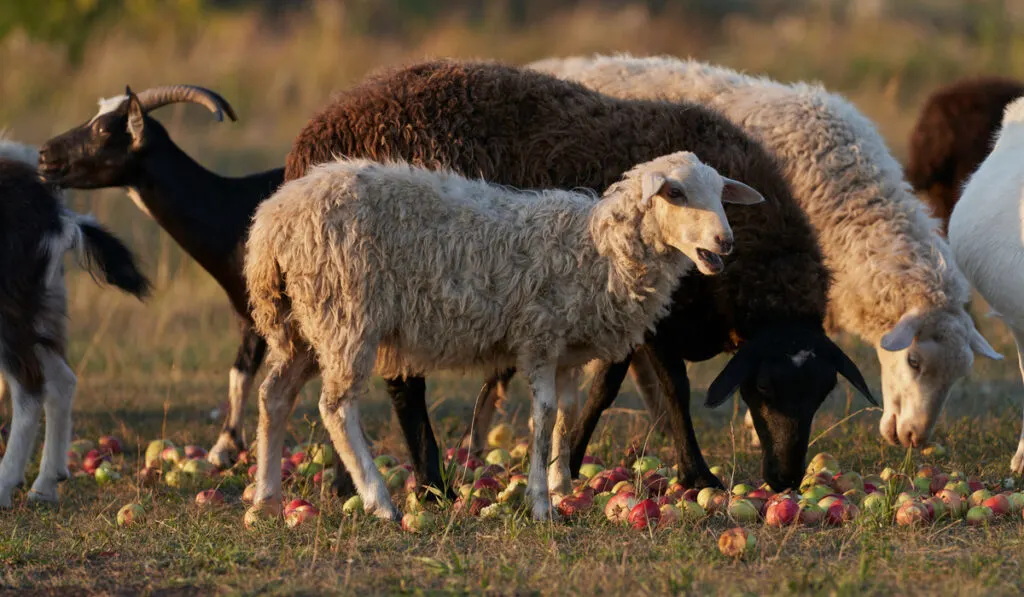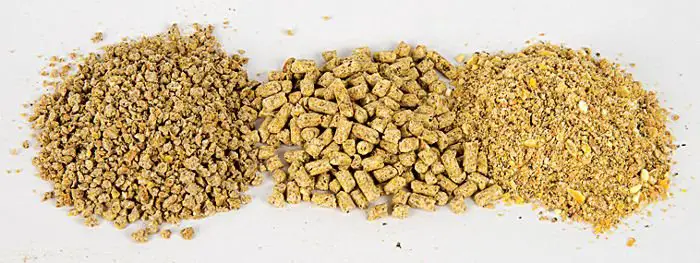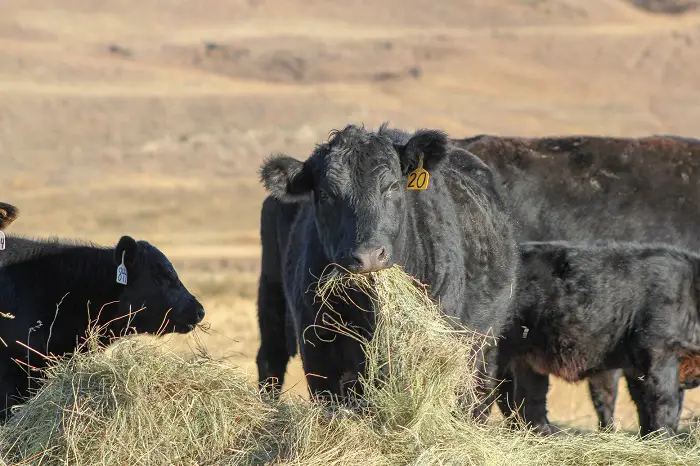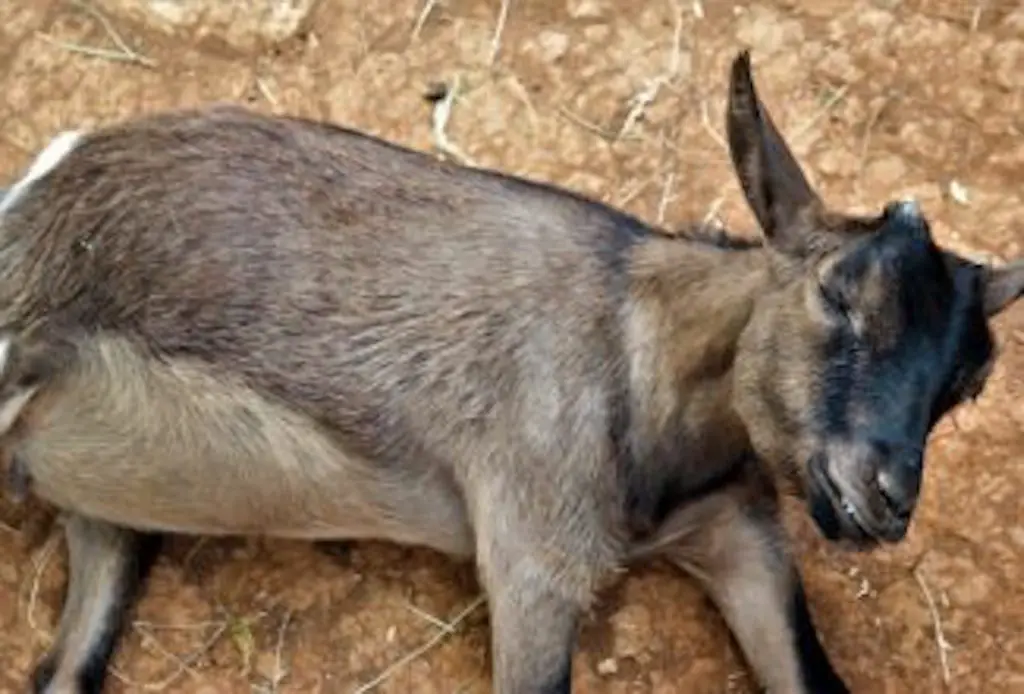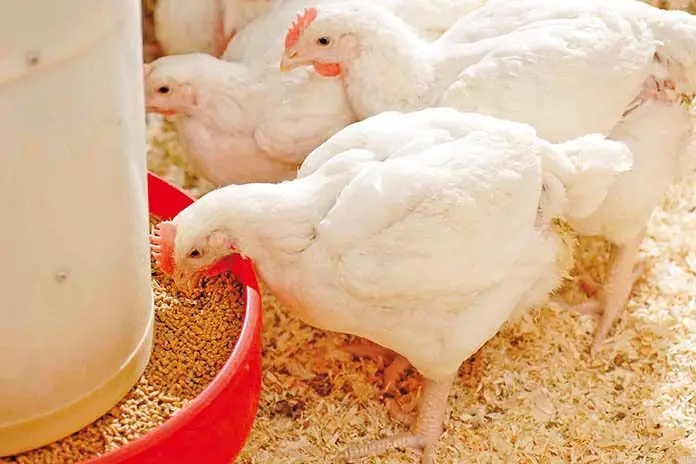bananas, papayas, and mangoes. Sheep are primarily ruminants feeding predominantly on grass digesting this high-fiber feed with the help of microbes in their rumen. Sheep are not the hardiest of domestic animals and can succumb to a wide variety of ailments and conditions, hence one should take care of what they feed to these animals. Sheep can be seen in the wild snacking on various fruits and fruit tree forage as a means of balancing their diets. By definition, a fruit is the fleshy, ripened, and mature ovary of a plant flower and it can contain the contents of the ovary in the form of seeds. Sheep can eat a wide variety of fruits but because fruits are also a diverse group of feeds most decisions on what fruit to feed rely on regional knowledge and experience.
Contents
Grass is the Best Food for Sheep
Grass in the form of grazing and hay is the most common feed for sheep and the primary feed that most sheep a raised on. Many grass species are grown for feeding sheep among them orchard, timothy, bluegrass, and cereal grain grass like oats and ryegrass. These grasses can be cured into hay and fed to sheep as part of their daily feeding. Sheep will not be able to do well without grass as it provides the main source of fiber which is digested in the rumen to provide energy and other nutrients.
Other Feeds Sheep Should Eat
If grass is fed as a sole diet to sheep, it can essentially meet all their dietary needs but where high performance in terms of growth is required protein and energy can be supplemented from other feeds like legumes and grains. However, these feeds are highly concentrated and should not be fed alone and in moderate amounts to avoid bloating and acidosis. Examples of these are lucerne hay, oat, maize, and rye grains. Other forages like kale and some members of the brassica family can be grown and fed to sheep.
Things Sheep Cannot Eat
Sheep are not very finicky eaters and the following feeds should be avoided when feeding sheep potatoes, cassava, nightshades, and common garden plants like buttercups and holly. On this list of feed to avoid feeding to sheep there are fruits like avocadoes, tomatoes, rhubarb and cherries
Fruits Sheep Can Eat
An important caveat regards sheep eating fruits is that fruits should not form the bulk of the sheep’s diet but be just snacks or supplements. Fruits can be divided into six broad categories berries, pits, core, citrus, melons, and tropical fruits. Fruits and by-products from fruit processing like peels can be successfully fed to sheep with good results and a reduction in feed costs. Fruits can be fed to sheep in fresh or dry form depending on availability. The following common fruits that are mostly for human consumption can be eaten by sheep broken into six categories:
Berries
Are small, juicy, highly perishable fruits with thin skins, the list includes
- Strawberries
- Grapes
- Blueberries
Pits
These fruits have a soft, fleshy fruit that surrounds a single hard seed like:
- Peaches
- Plums
- Apricots
Core Fruits
In core fruits, there is a central core containing seed, surrounded by a thick layer of flesh with a relatively thin outside skin
- Apples
- Pears
Citrus Fruits
Citrus fruits have a thick outer skin or rind and the fruit is separated into segments inside this skin by thin membranes
- Oranges
- Grapefruit
Melons
Melons are large, thick-skinned, juicy fruits with many seeds and most are safe for sheep to eat, the list includes
- Water Melons
- Cantaloupes
- Pumpkins
Tropical Fruits
This is the most diverse group of fruit grown primarily in warm climates of the globe and here care should be taken as most of these exotic fruits might be alien to sheep.
- Bananas
- Plantains
- Figs
- Guavas
- Papayas
- Mangos
This list in itself is not exhaustive and farmers can rely on local knowledge and experience to see which fruits are safe for sheep to eat. Care should be taken when sheep are fed fruits as the high sugar content of most fruits can cause rapid fermentation in the rumen ultimately leading to bloating. This is made worse by the fact that most modern fruits have been bred and selected for low fiber and sweetness. Most fruits from the nightshade family are poisonous to sheep and should not be fed to sheep the list includes tomatoes, eggplants, and peppers, this includes also the forage from these plants
Can Sheep Eat Blueberries?
Sheep can eat blueberries as the berries are a good source of vitamins C and A and fiber. Blueberries are very nutritious and the fact that they are also rich in fiber helps as a digestive aid when given to sheep. Sheep can consume blueberries without any adverse effects on performance, but sheep should be introduced gradually to blueberries and as part of a balanced diet to avoid digestive upsets.
Can Sheep Eat Clover
Clovers are leguminous plants that are grown for animal feeding on most farms, hence sheep can eat clovers. Clovers like other legumes are protein-rich and provide valuable protein for the multiplication of rumen microbes present in the sheep rumen that help digest the forage that they consume. Clovers are known to cause pasture bloat when consumed in excess so care should be taken when grazing sheep on clover-rich pastures to always provide good quality grass hay.
Conclusion
Most common fruits are relatively safe for sheep to eat but care should be taken that they are just a small part of the diet. Sheep being ruminants require adequate amounts of fiber for normal digestive function and grass or legume hay should be the core diet. Fruits in moderation provide some energy and vitamins to balance the diet that sheep would be getting. Most modern fruits are high in carbohydrates and sugar and very low in fiber which makes them an acidosis and bloat risk when fed in large amounts so care should always be taken to introduce fruit gradually and monitor intake.
